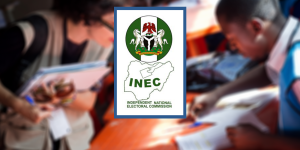AREGBESOLA AND BETTER TECHNOLOGY FOR THE ISSUANCE OF PASSPORTS IN NIGERIA
The minister of interior Rauf Aregbesola has hinged the future of ISSUANCE OF PASSPORTS in Nigeria to technology. Aregbesola noted that giving the critical role ICT will play in the work of the Service; the ministry has launched an IT solution that has simplified ISSUANCE OF PASSPORTS. According to him, this IT solution “will ensure that all Nigerians carryout registration, without visiting any of immigration offices. This solution can be used anywhere in the world. From the time you register with immigration online. Aregbesola has predicted that technology would play a major role in the future of the issuance of passport. Technology seems to dictate the speed at which life is changing.
Aregbesola is considering the benefit from online passport application roll out. It is designed to improve efficiency and convenience by providing a modern and secure service to millions of passport holders and applicants. The service means applicants can upload a suitable digital photo from their smartphone or tablet, making applying for a passport quick and simple. In total, the whole process takes 10 minutes.
Aregbesola is introducing a host of new tech projects under issuance of passport, and he hopes to complete and implement most of these very soon. The most crucial one, already in its pilot stages, is the integration. Integration with the database that can make verification a much less tedious task for the passport authorities, This integration will help Nigerians with establishing identity by verifying even the biometric match.
Most people agree that getting or renewing a passport today is a relatively less cumbersome process than it was half a decade back (it was a nightmare back then). The form filling is online, and the portal doles out appointment slots to applicants right after they submit their forms. The passport centers themselves have become more organized and give a verdict on your passport status right then. Once approved, citizens can also track the status of their passports online and get updates via SMS. ..
Passport Seva has always been a relatively tech-savvy department. Their digitization took a concrete form back when the passport application process went completely online and the first few passport Seva went live. Today, the passport application and issuance process is getting a major technology upgrade. There are a slew of integrations and applications in the pipeline.
The Minister of Interior, Rauf Aregbesola, recently disclosed that the federal government was working towards introducing a better technology for the issuance of the Nigerian Passport such that there would not be physical contact between the passport seeker and passport provider. Aregbesola, who stated this at the opening ceremony of the 2019 Comptroller-General of Immigration’s Annual Conference in Benin-city, Edo State capital, said the new method of issuance of passports would reduce fraud in the system.
The ministry of interior in Nigeria will key into International Civil Aviation Organization (ICAO), under United Nations charter, develops standards for passports and other official international travel documents. In most nations, standard passports have long since transitioned from paper-based documents. Today secure plastic-laminated papers or full-page plastics, such as polycarbonate, provide additional surface features to make the passport more durable and far more resistant to tampering or forgery.
In the last 3 years, the ministry of interior in Nigeria has key into another major change to the ICAO passport standards which is a mandatory transition to machine-readable passports, visas and other travel documents necessary for border crossing. All non-machine readable passports must be out of circulation by November 2015.
Typically, Rauf Aregbesola is introducing a technology, transition to machine-readable cards which means the inclusion of contactless smart card technology, which improves security by making forgery even more difficult. A smart-card enabled electronic passport (ePassport) contains both a security key that is unique to the passport and cannot be fraudulently generated as well as an embedded microchip that cannot be read without this security key.
The chip contains a duplicate of all the information physically presented on the passport, including name, date and place of birth, and an electronic copy of the passport photo. With an ePassport, border security officials can scan the document through a machine to read the embedded electronic information and quickly determine its authenticity. The chip also enables rapid automated reading, reducing waiting times and eliminating errors when processing passengers. The chip’s software contains an arsenal of technical measures to ensure any modification is not only extremely difficult but also easily detectable. The data is stored securely and cryptographically signed by the government agency that issued the passport.
Nigerians have commended the Nigeria Immigration Service (NIS) for the introduction of the National Biometric Identity Card for Intra-ECOWAS Travel and Biometric Registration of foreign nationals as a new security measure in the country.
Without a passport, legal international travel is virtually impossible, but the potential to cross international borders using fraudulent documentation continues to open sovereign nations to major security threats.
Aregbesola is providing rigorous standards to ensure that all international travel documents are valid and legitimate are critical in matters of internal security. These standards have evolved over the last decade to incorporate technological advances, but it is not clear whether these improvements are being utilized globally to the fullest extent.
The passport readers at border crossings verify not only the identity of the citizen, but also the authenticity of the document. If the data has been modified, the digital signature will no longer correspond and the document will be flagged as false.
The process of obtaining a passport could be significantly eased for visa applicants, as well. Passports could be securely requested over a smartphone or other mobile device, and after rigorous verification as noted above, it could be written directly onto a passport’s chip. This would make it even more secure and improve the government’s ability to prevent overstays via the database.
This technology is likely to become more common further into the future, with the next generation of ePassport standards under development by ICAO. Called Logical Data Structure 2.0, these standards will focus on electronic requirements for the rest of the passport apart from the data page, including visas.
Additional biometric improvements to international passport standards are also on the horizon. The most recently issued ICAO standards include a new globally interoperable standard for biometric identification of the holder and for the storage of the associated data on a contactless integrated circuit. Biometric identification is most likely to continue to favor mostly fingerprints, but iris scans or facial recognition is also possible.
Obviously, protection of an individual’s biometric data against identity theft is a major concern, particularly if a passport is lost or stolen. Currently, the majority of issued ePassports include Basic Access Control protections, to ensure that only authorized parties, such as immigration officials, can wirelessly access the personal information stored on the ePassport’s chip.
The ICAO’s Extended Access Control standards are advanced features that protect additional biometric data stored on the passport as well. While Basic Access Control standards are required, Extended Access Control is optional for individual nations issuing the next generation of machine-readable travel documents.
![]()




The minister also charged the NIS to play a leading role in ensuring that the borders of Nigeria are safe and secured to guarantee buoyant economy and a transparent service delivery.